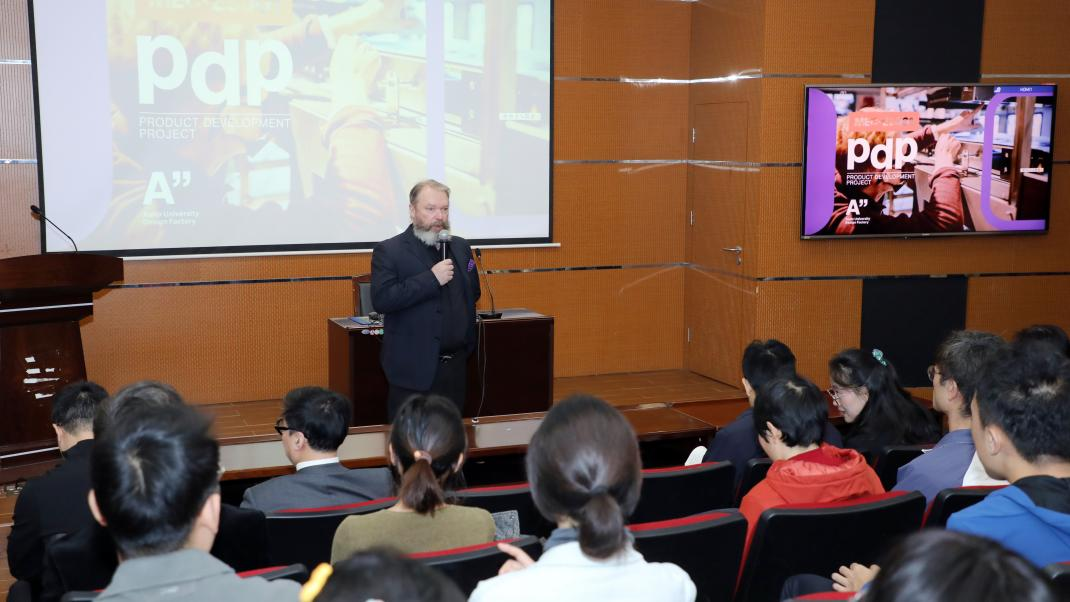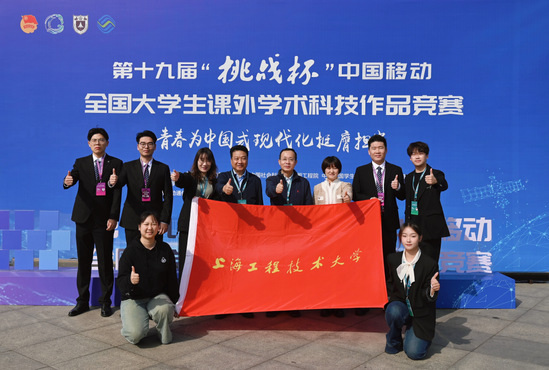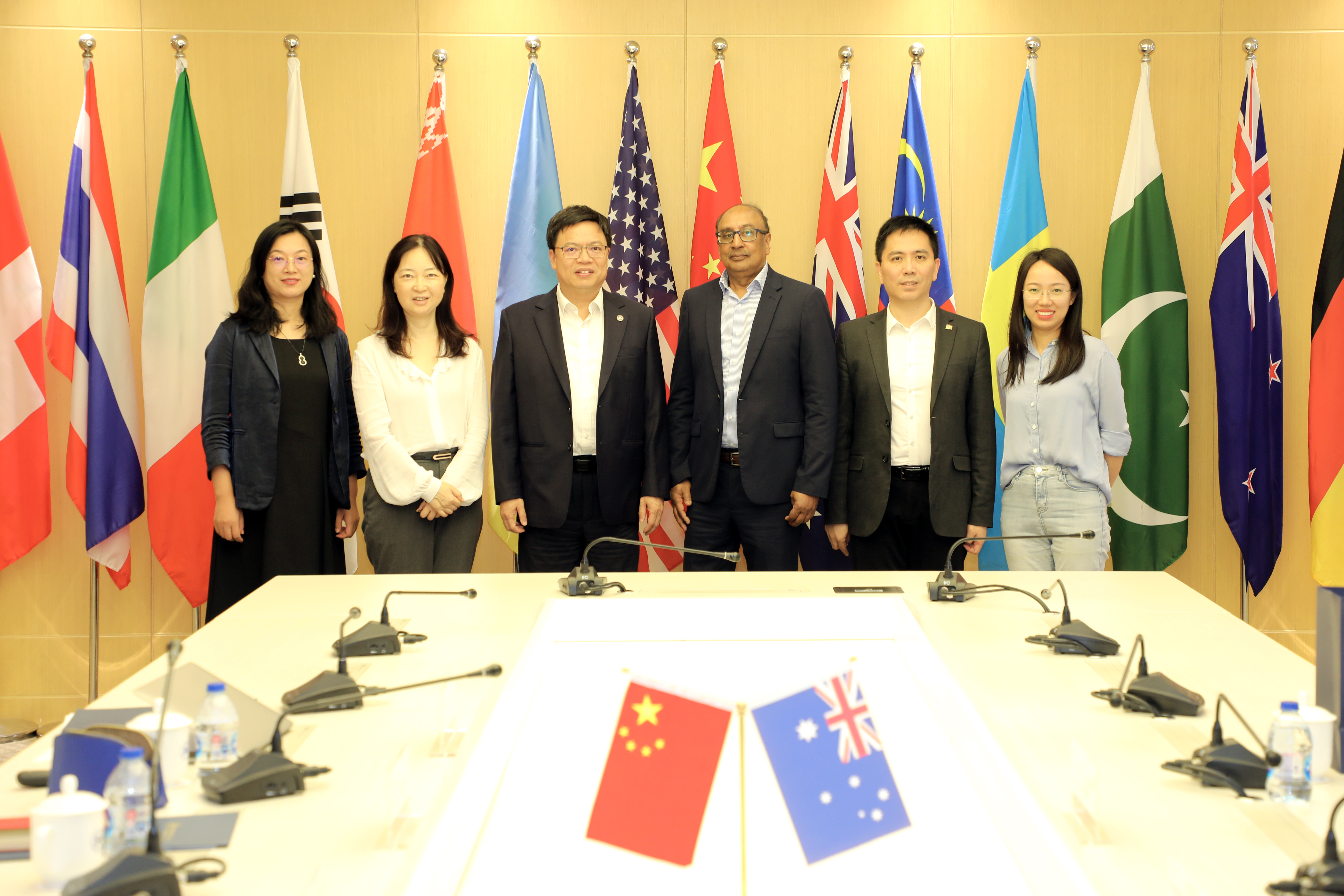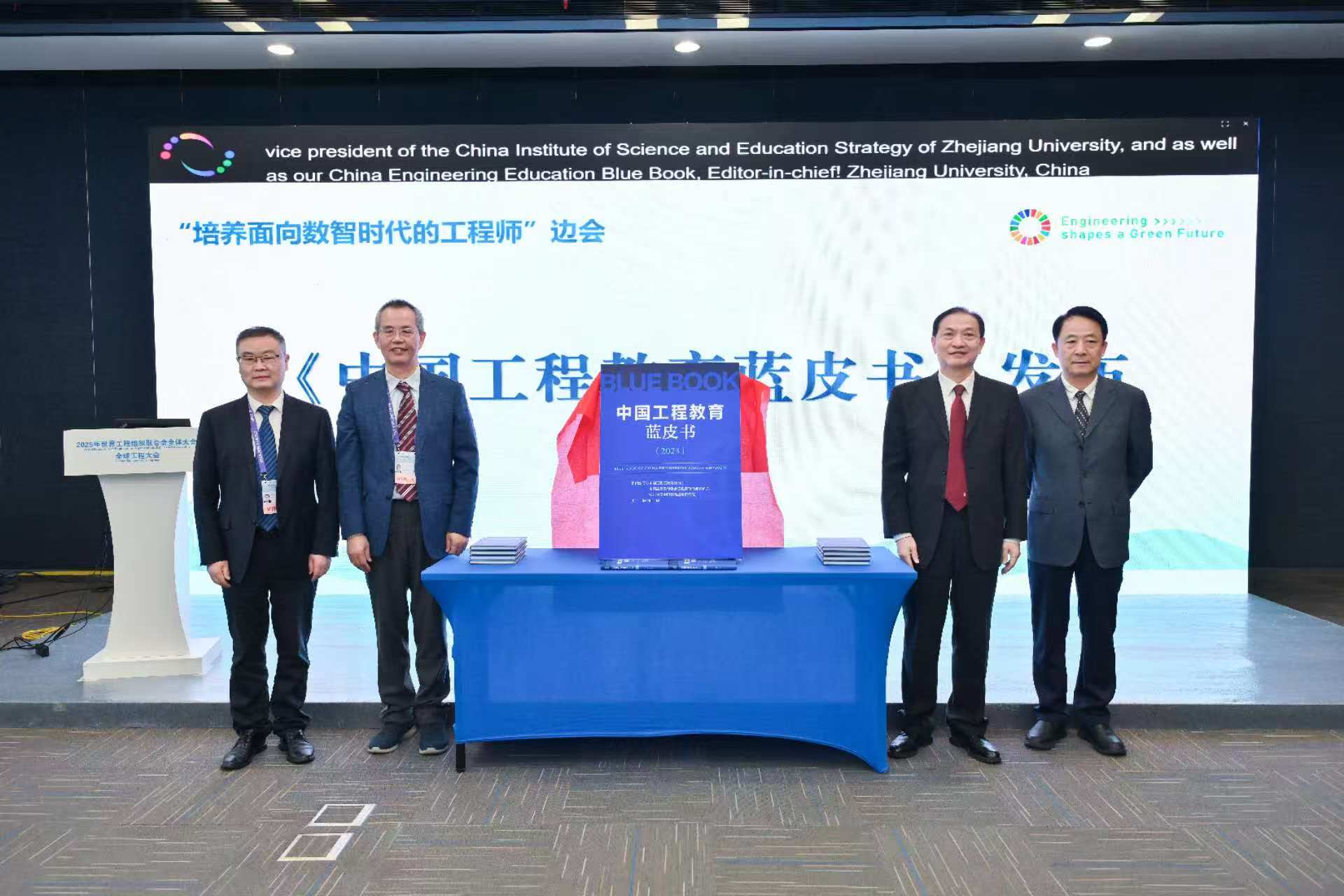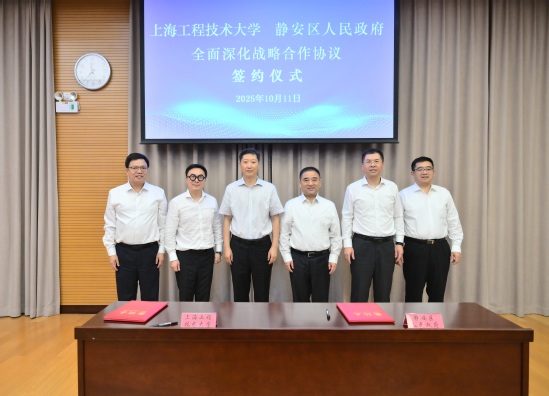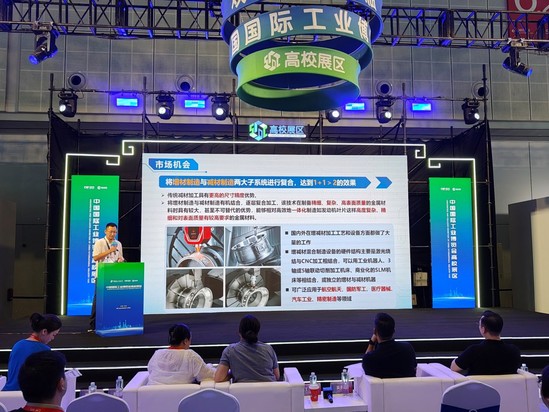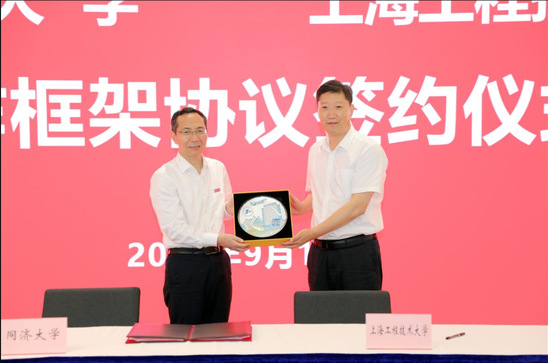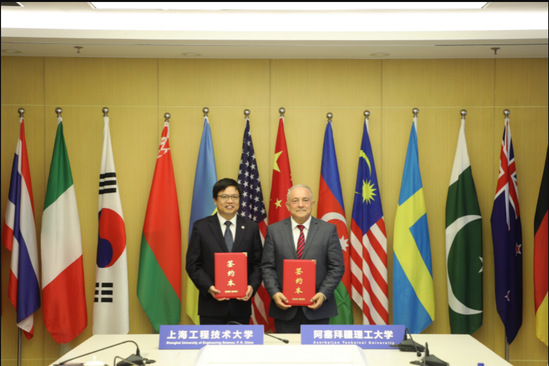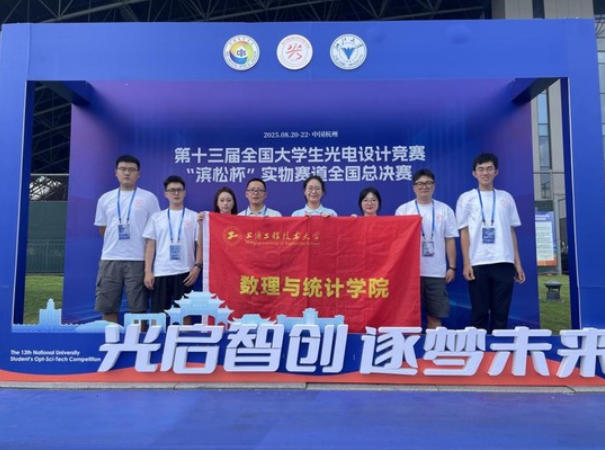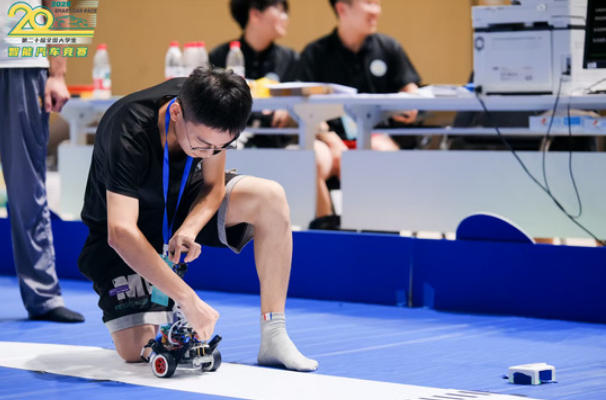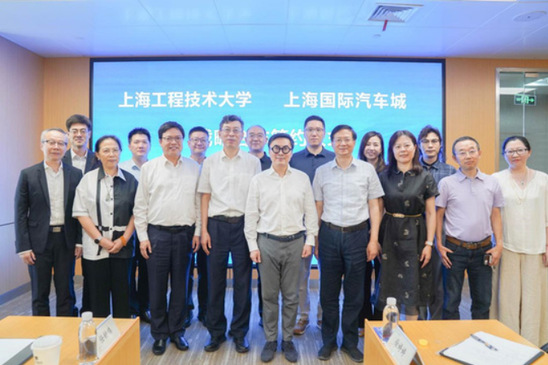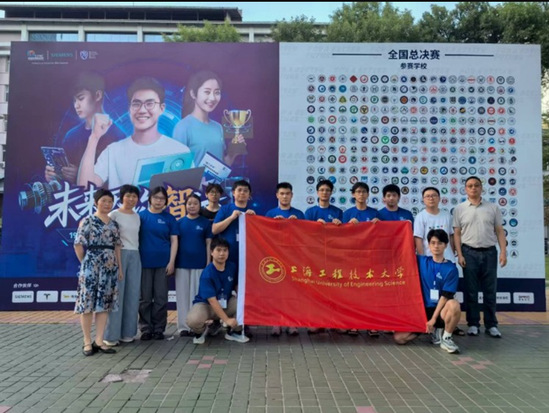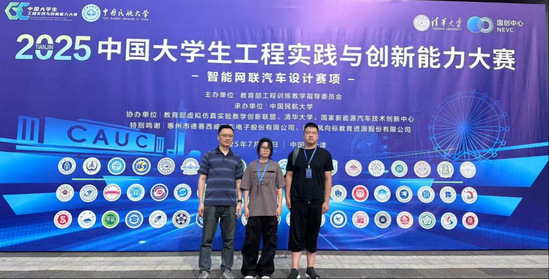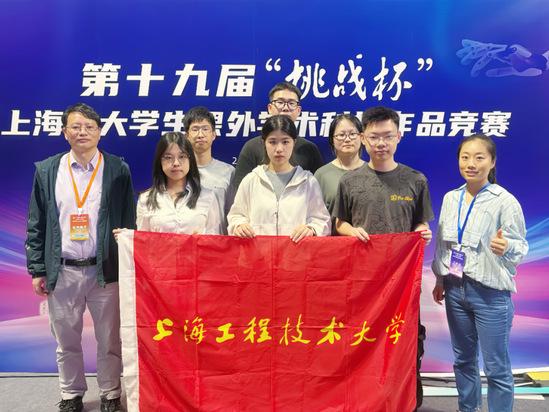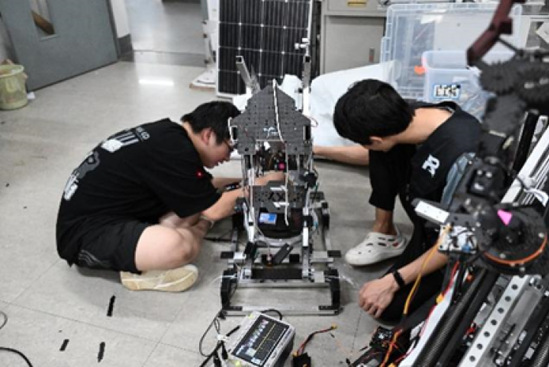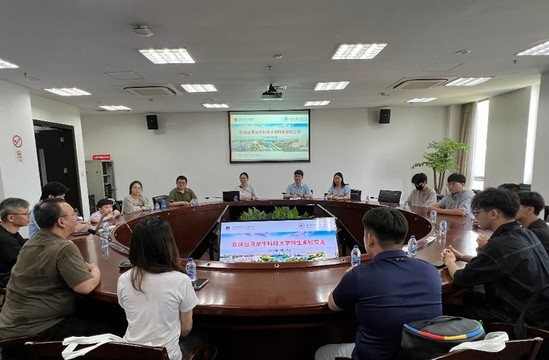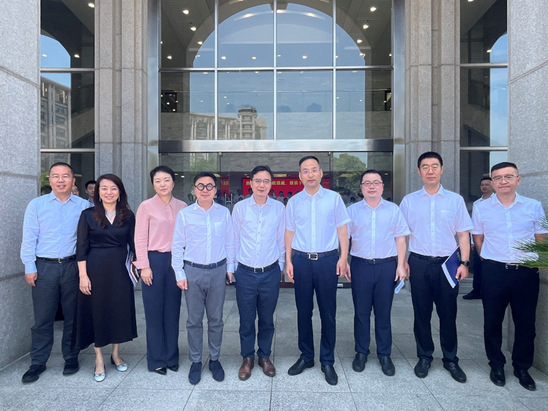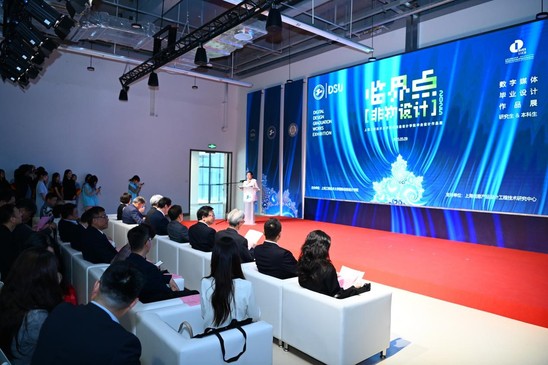

On the afternoon of May 9th, International Institute of Creative Design held the graduation exhibition titled Tipping Point—Immaterial Design for the 2025 cohort of undergraduate and postgraduate students in Digital Media Art and Design at the Industry-Education Integration Building Exhibition Hall on Changning Campus. Attendees included Lim Kyeongho, President of Kongju National University of South Korea; Chang Jekuk, President of Dongseo University of South Korea; Xia Chunming, Vice President of Shanghai University of Engineering Science; leaders from relevant SUES departments and schools, industry representatives, as well as faculty and students of International Institute of Creative Design. The opening ceremony was presided over by Li Yunxian, Secretary of the CPC Committee of School of Art and Design.
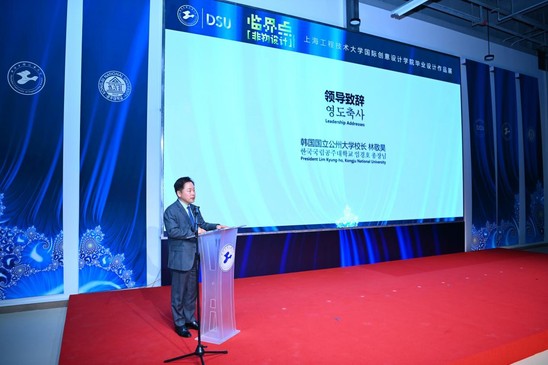
In his speech, Lim Kyeongho emphasized that the days spent burning the midnight oil to complete projects and the experiences of collaborating across cultural differences were the very foundations that shaped today’s achievements.
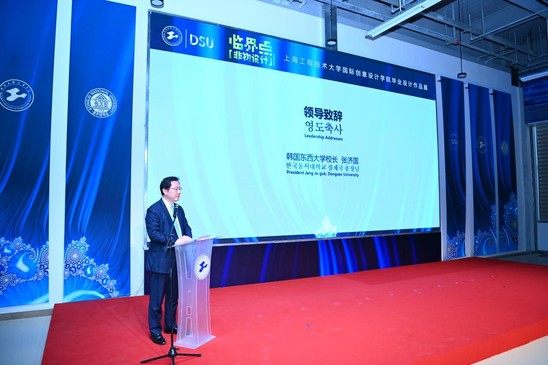
Chang Jekuk expressed in his address his hope that graduates would use the exhibition as a starting point to grow into international talents leading the media design industry.
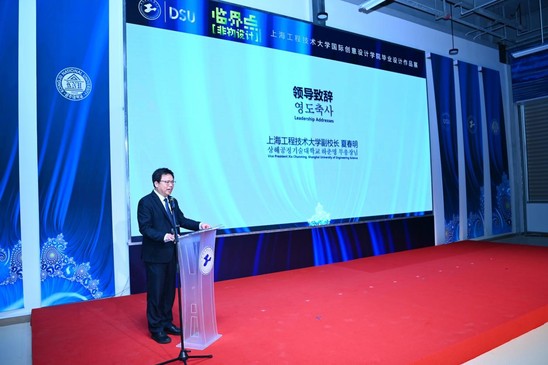
Xia Chunming extended heartfelt gratitude to the cooperative institutions and corporate guests who supported the graduation exhibition.
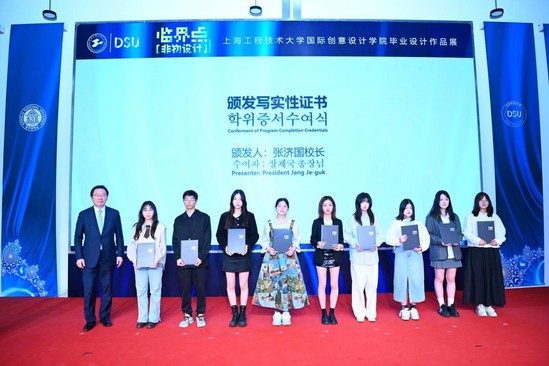
Chang Jekuk presented the graduates with certificates.
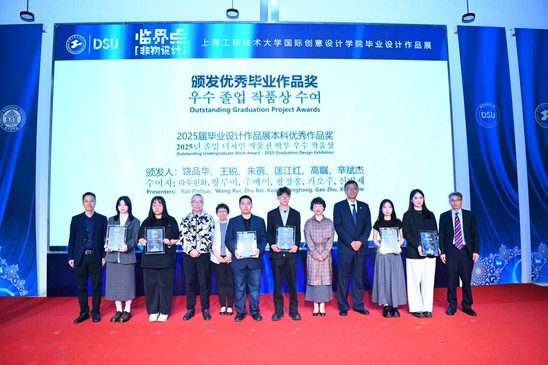
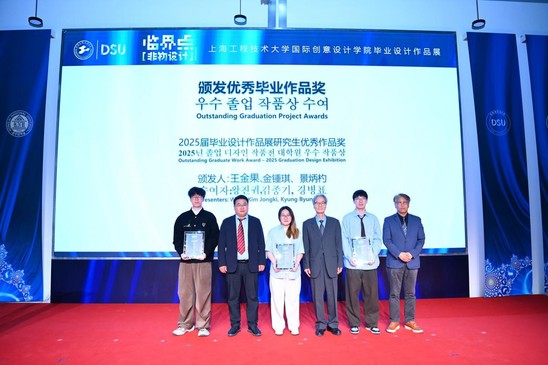
Leaders from relevant departments, deans from peer Schools, and the Korean dean awarded outstanding undergraduate and postgraduate graduation project prizes to the students.
Jiang Kongkong, Deputy General Manager of Shanghai Jiushi Culture Communication Co., Ltd., delivered a speech as an industry representative.
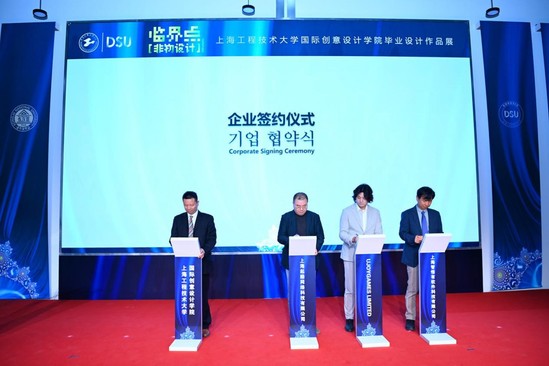
Gu Yi, Dean of International Institute of Creative Design, represented the institution in signing school-enterprise cooperation agreements with UJOYGAMES LIMITED, Shanghai Zhiwuyou Software Technology Co., Ltd., and Shanghai Qiku Network Technology Co., Ltd.
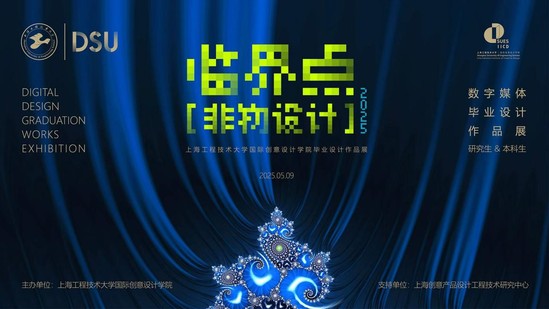
Centered on the theme of Tipping Point, this exhibition focuses on the concept of Immaterial Design, showcasing through digital technology, virtual interaction, and intelligent applications the profound reflections of faculty and students on the boundaries between technology, ecology, culture, and society.






